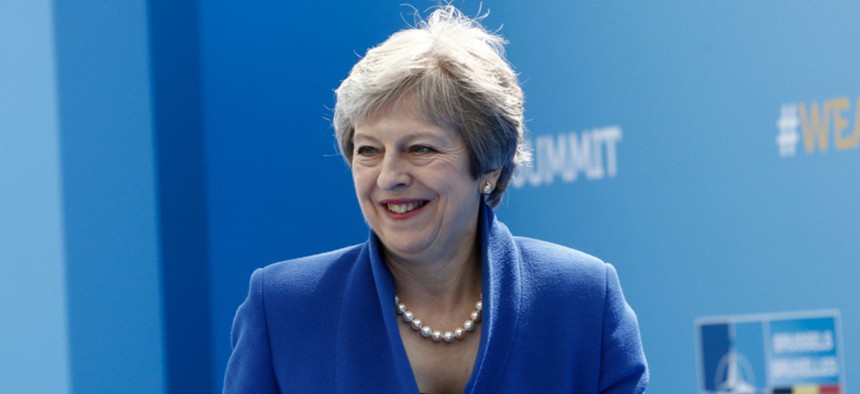The Decision-Making Style That Helps Leaders Survive Can Also Thwart Their Legacy
Consider Merkel and May.
When it comes to negotiating, world leaders often fall into two camps. On one side are those open about their decision-making and on the other are leaders who hold their playbook closely to their chest.
British prime minister Theresa May sits firmly in the latter camp.
May rarely promotes inclusive decision-making. She’s told members of her party to trust her (paywall) and let her get on with delivering Brexit. She works with a small, dedicated team; publicly, she only hints at policy ideas through vague slogans and speeches. She’s fought a court case that would allow British parliament to vote on whether the UK can start the process of leaving the European Union (EU) and resisted an amendment that would have given parliament the power to stop Britain leaving the EU without a deal. More recently, May barred mobile phones and special advisers from the cabinet away day at Chequers, where a plan for Brexit was being hammered out.
There are obvious advantages to May’s model. Political leaders who are closed off don’t have to compromise as much on their vision and can force policies through quickly. But while this form of decision-making has helped May keep a tight rein, it can spell bad news for her policies in the long run.
Simon Usherwood, a leading researcher on euroscepticism based at the University of Surrey, says May has long-relied on a closed model of decision-making because it worked: Before May became prime minister, she was the longest-serving home secretory since Henry Matthews in 1892, and weathered numerous issues from crime to immigration.
Her policies, however, haven’t been as durable. While May pushed through massive immigration reform during her time as home secretory, her flagship immigration policy to create a “hostile environment” for migrants who remain in the UK unlawfully was temporarily suspended last week. Her policies around Brexit appear to be similarly short-lived; shortly after announcing her Brexit plan, May caved to hardline Brexiters’ demands.
For a divisive issue like Brexit, Usherwood says a more inclusive approach to policymaking is necessary in the long run. He points to German chancellor Angela Merkel as an example of leader who not only takes a more open approach to decision-making, but is comfortable crossing ideological lines. Merkel’s consensus approach to decision-making has allowed her to co-opt internal and external positions, diffuse threats, and push through economic and political changes. Following the 2013 federal election, she got the right to agree to a minimum national wage and got the left to agree that taxes will not rise. In more recent years, she passed gay marriage, without isolating her conservative base.
An open model of decision-making takes longer and requires a lot more compromise, Usherwood acknowledges, but once a decision is reached, it’s likely to last longer because it will be remembered as legitimate. This is part of Merkel’s success. The German chancellor has made an art form of working slowly and deliberately to build a consensus and then act. The strategy—of waiting before acting— earned a name, auf Sicht fahren (“driving by sight”), a German term for driving safely in fog by slowing down to see what’s ahead.
The open model is not the solution to everything nor is it always possible, Usherwood says, adding, “It’s not that one [leadership model] is good and one is bad.” Merkel is struggling to find consensus on immigration and the issue may end up sinking her. But even if Merkel goes, her impact on Germany and the rest of the EU will be felt for generations to come.
NEXT STORY: Will Quitting Social Media Hurt My Career?



